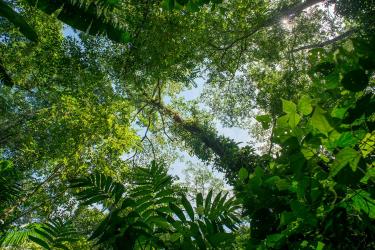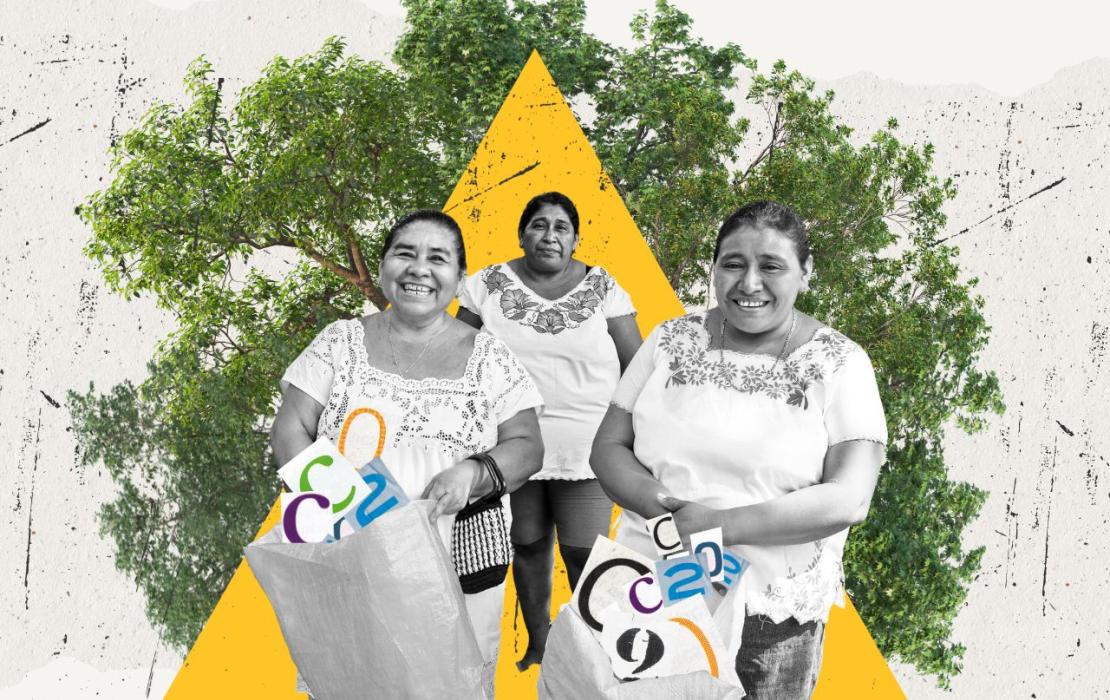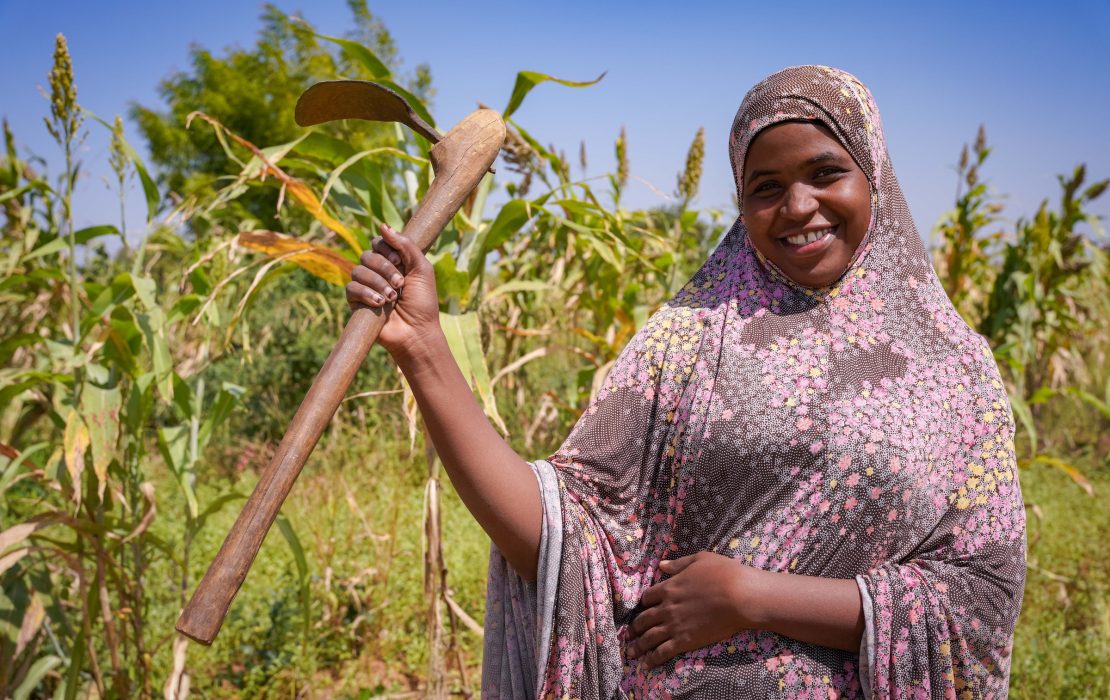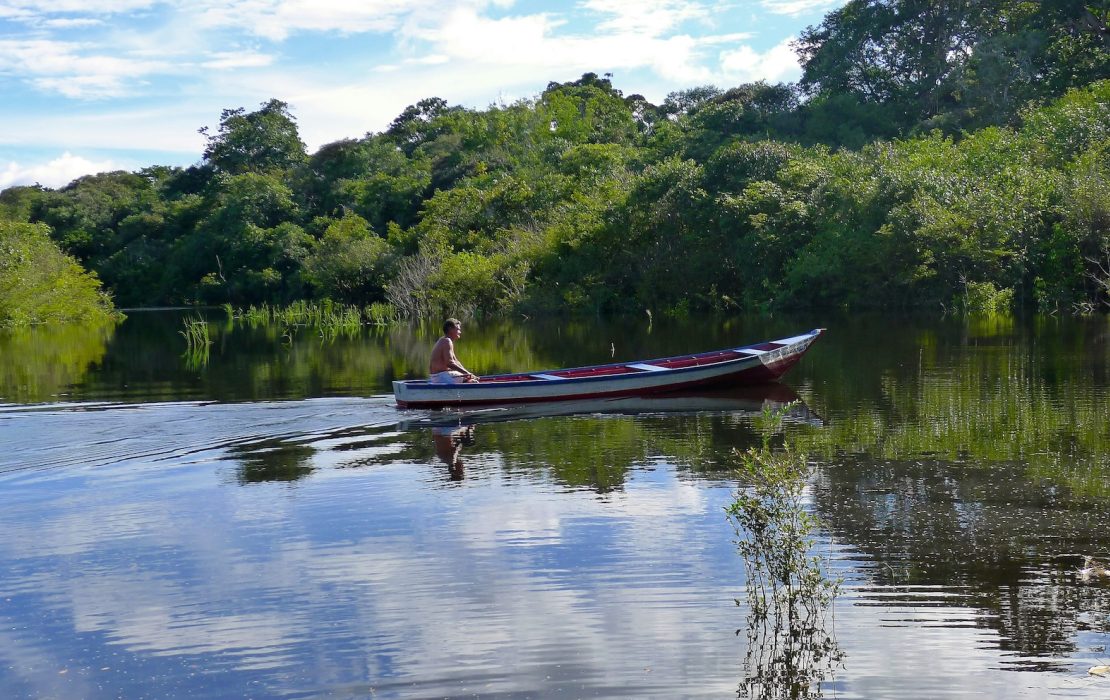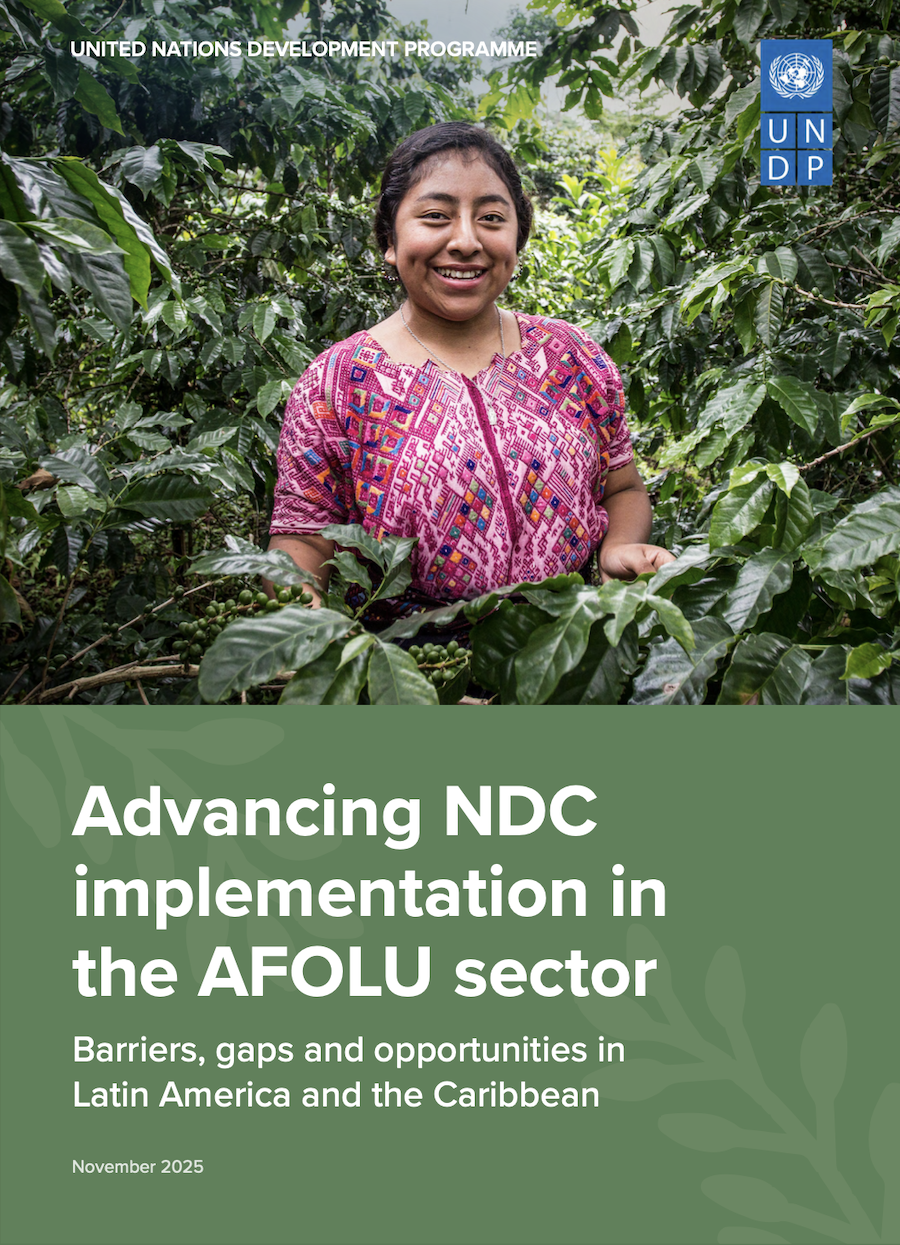Forests are critical ecosystems for global sustainability. They mitigate climate change by acting as carbon sinks, they provide habitats for most of the terrestrial biodiversity, they sustain the livelihoods of nearly one billion people, and they represent the ancestral territories for many Indigenous Peoples.
However, deforestation and forest degradation remain rampant, currently accounting for about a fifth of global carbon emissions.
The Paris Agreement recognised REDD+ as an international financial instrument to incentivise countries and subnational jurisdictions to reduce emissions from deforestation and forest degradation.
Under the Climate Promise, UNDP assists countries to develop and implement innovative policies, programmes and financial instruments to address deforestation and advance sustainable land and territorial management:
- Climate policy ambition in the forests and land sector: UNDP advises countries to design and adopt innovative and inclusive policies to address deforestation and manage landscapes sustainably, while meeting the goals of the Paris Agreement. This support, which is fully integrated with the Sustainable Development Goals (SDGs), other environmental agreements and national development plans, includes enhancing national pledges submitted to the United Nations Framework Convention on Climate Change (UNFCCC), such as Nationally Determined Contributions (NDC) and Long-term Low Emission Development Strategies (LT-LEDS) and their monitoring through national reports, such as Biennial Transparency Reports (BTR).
- Financial incentives: UNDP supports countries to access REDD+ finance, including from multilateral funds, particularly the Green Climate Fund, and the private sector, such as through carbon markets. This finance is then channeled to local stakeholders through diverse incentive mechanisms, such as payments for ecosystem services (PES), hence ensuring social equity.
- Forest landscapes and sustainable trade: UNDP assists countries to align their climate, agriculture and trade agendas. This complex undertaking includes establishing cross-sectoral partnerships, developing policy and regulatory frameworks (such as developing national certification and traceability systems for deforestation-free production, including digital solutions), building the capacities of farmers and their cooperatives, engaging international companies, and mobilizing green credit.
- Indigenous Peoples and local communities: Indigenous Peoples and local communities play crucial roles as forest stewards, yet they receive a minimal, unfair share of climate finance. UNDP is engaged in correcting this imbalance by building alliances and mechanisms that enable these key forest stakeholders to access climate finance for forest conservation and to implement bioeconomy solutions. This includes advancing participatory policy-making, mobilizing public finance through NDC community grants or PES schemes, supporting tenure rights, and facilitating community access to private finance from impact investors or philanthropic funds.
This support under the forests and land work area is rooted in international practices for environmental integrity and social equity.
To ensure a wide contribution to the SDGs agenda, this work intersects with that of other UNDP initiatives, such as the Nature Pledge, the Sustainable Finance Hub, the Food & Agriculture Commodity Systems, the Small Grants Programme and the Digital for Nature and Climate initiative.
Our forests and land work also leverages action through international forest platforms, such as UN-REDD, the UNDP-Lavazza partnership for deforestation-free coffee, and Forests for Life.
